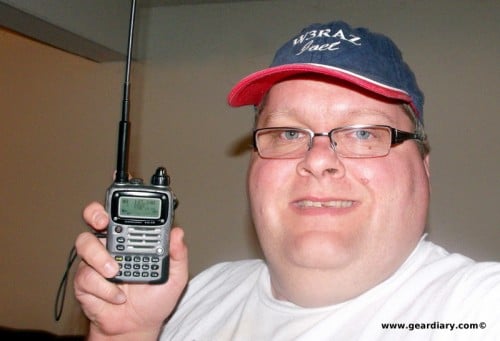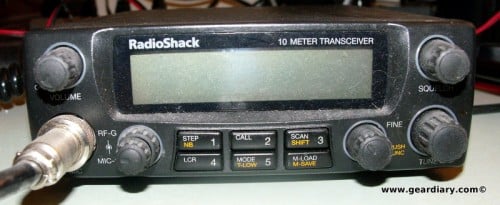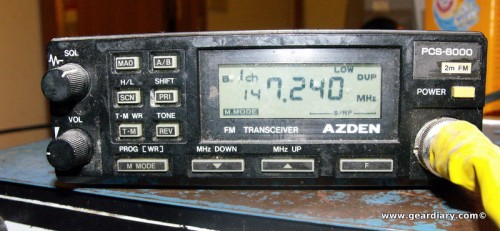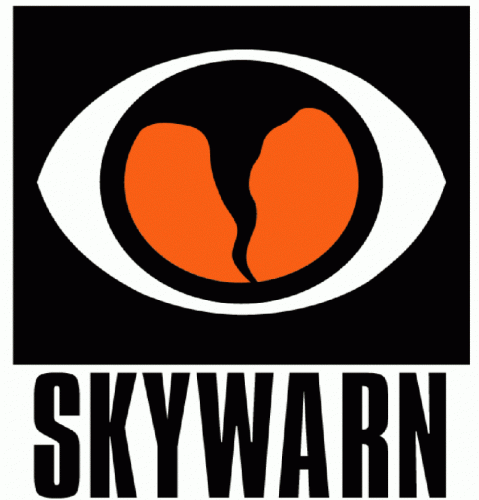I am almost embarrassed that I had not mentioned this earlier, but there is a hobby that I have been involved with in some form or another for almost 20 years — Amateur Radio. Amateur Radio which is otherwise known as ‘ham radio’ has been around since before most of us were born. It has roots in the 19th century; experimentation with radio started in 1888 with the likes of Heinrich Rudolf Hertz, Nikola Tesla and Guglielmo Marconi. I first learned of this wonderful and rewarding hobby from my grandfather, who originally held the very same call sign I have today, W3RAZ.
The whole time I knew my grandfather, William Dale Fulton, he was a Ham Operator. I have many memories sitting in the ham shack listening to my grandpa chatter on the HF, or High Frequency radio bands. My grandpa’s favorite band was the 10 meter band. I remember hearing stations from all over the country talk to him on something about the size of my inkjet printer and considerably heavier.
Nowadays there is no challenge to having your blog post read in many countries; it’s incredibly easy to do something like that in this day and age. But when I was a boy, it was a rarity and an accomplishment to make a 3,000 mile contact on HF. It still is today, but the allure of the global internet has taken away from it slightly.
It’s thanks to my grandfather that I got interested in tech. He helped me when I was in scouts with a science project involving relays, Christmas lights and a light sensor. After scouts and high school, I decided to come to Columbus where I obtained my Bachelor’s of Science in Electronics Engineering Technology at DeVry Institute of Technology, now known as DeVry University. It was during this time in college when I studied to earn my Amateur Radio license.
I still remember the day I went to the testing location. I was extremely nervous. I was only taking the Technician license, which was the first license to not require learning Morse Code. That day I walked out of the test knowing I had passed the exam. It took a couple of months for my first license to arrive with my original call sign, N8VQJ. Unfortunately, because my grandfather was getting on in years, I was never able to have a conversation with him via ham radio. Right before I got married, my grandfather passed away. A few years later, his license had finally lapsed, and I decided to upgrade to a General Class license. At that time, I had to pass a 13 Words Per Minute code exam to gain additional privileges. Again, I was nervous.
I decided to take my test that year at the Dayton Hamvention, which is one of the biggest events for Amateur Radio Operators. Think CES, but for the ham operator. Anyway, I remember talking to my ham friend, Carl, AA8YY about taking the exam. I told him if I passed, I would be applying for my grandfather’s call sign. I walked upstairs with my current license and existing paperwork, feeling extremely nervous that I would fail the morse code portion of the exam. An hour or so later, I passed and walked out with the ability to use my new privileges by signing N8VQJ/AG. I met up with Carl and he handed me a badge with my new call. Now, I didn’t know for sure that I would get the new call until a week or so later, so I chuckled when he handed it to me. Luckily, no one else wanted the call, and the FCC approved my application so I could become the next W3RAZ, keeping the call in the family.
Throughout this post, you will see some of my equipment, but the above picture is something special. This radio is a Azden PCS-6000. The radio is a single band radio on the 2m band. It is one I will never part with, as it was my grandpa’s last 2m radio — an original piece of the original W3RAZ station — it’s over 20 years old and still works today.
Now Ham Radio is not just a hobby. It is also a public service. Yesterday, those in Texas experienced some violent and tornadic storms. One way that the National Weather Service gets data on these storms is from trained weather spotters. There’s a service that is called Skywarn that is usually staffed by Amateur Radio operators. We ham operators are the eyes and ears of the National Weather Service, and we are there to help. That’s not all though, there is also the Amateur Radio Emergency Service.
When a big storm like Hurricane Katrina hits the US, some of the first people on the scene are the ham operators. We set up generators and stations to get health and welfare traffic in and out of the disaster zone. ARES radio operators train for this, and they regularly use their equipment in support of community events like Race for the Cure and other charity walks, runs and bike rides. It is by working these events that we hone our skills so that when the disaster really hits, we are there.
Keep reading Gear Diary for more ham radio stuff. I plan on writing about how to get your license, how to make your own antenna, how to combine the Internet and Ham Radio and more. Ham Radio may seem like it is a dying hobby, however, I feel that there is a lot of life left in it. New modes and devices are being developed all the time. If you can’t wait for more, then check out the Amateur Radio Relay League’s site for more information. I hope to bring Gear Diary readers something a bit different by sharing my interesting hobby, and I hope that my grandfather would be proud of my accomplishment. There is not one day I don’t think about him when I use any of my radios.





That handheld radio in the first photo looks very familiar! I’ve got the VXA-710 aviation version in silver and the ham VX-7R version in black. I’m a member of SkyWarn, too. One problem I’ve had is that I’ve never been able to get the VX-7 Commander software working on my PC so I can manage those radios on my computer. So I’ve had to slog through the on-radio interfaces, which are difficult.
This is one area that the older radios don’t seem to do well on. I know that the cable I have is a old DB-9 Serial Cable and I have to find the right USB to Serial adapter to work with it. I have an old Keyspan one that worked with my Mac when I had one and on Linux. On Linux, look up Chirp, Chirp works with my VX-7R.
I’ll give Chirp a try. I don’t normally use Linux, but I can run it in emulation.
It’s available for Windows too:
http://chirp.danplanet.com/
That’s a very handy link that should help ignoramuses like me learn about integrating such equipment with PCs and perhaps get a general idea of units to take a look at.
Indeed Bryan! I LOVE Chirp! n I just found a handy menu item in it that helps load repeaters from an online database. THAT is what happens with Open source! 🙂
Awesome! I’ll give it a try. Thanks!
Thanks for the interesting article, Joel. I’m going to do some research on this hobby. Of course, Linux was the first thing that came to mind when considering the ham-pc aspects. 😉
There’s some really cool stuff you can do with Linux and Ham Radio. A lot of Echolink sites use a Linux PC for their node.
When you get a chance, I’d love to see your opinions/rundown on startup models for beginners and maybe a bit more on the licensing side. I saw one model that an acquaintance had…Kenwood I think…and it was about $3k! I know that there are some models that are around $100 though…
It’s in the queue. I did a first radio post. I will delve deeper into Ham Radio in some upcoming posts. These just scratch the surface.